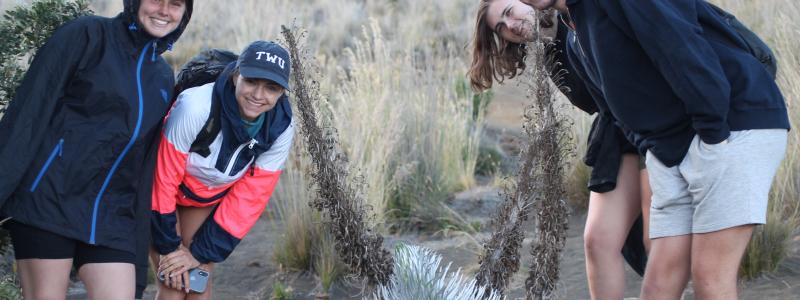From adventures like long hikes through tropical forests and across lava rock, to snorkeling above a fringing coral reef—it may be no surprise to hear that many students who participate in TWU’s Hawaii travel study find it to be an unforgettable experience.
The Hawaii travel study is TWU’s longest-running travel study, with over 33 years of history. This year’s travel study ran from May to June, with the first part of the trip focused on Coral Reef Ecology, taught by Professor Karen Steensma, and the second half of the trip covering Tropical Botany, taught by Dr. David Clements.
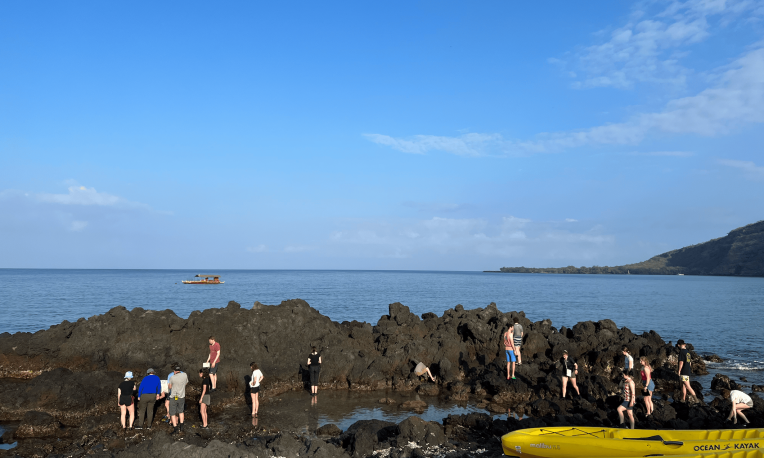
Interactive, outdoor learning
Professor Steensma and Dr. Clements explain that the travel study is predicated on learning as much as possible in the field. Each day’s itinerary involves a great deal of time spent outdoors. On a typical day, the class would embark early in the morning, travel for several hours to the chosen site location, and then spend the day hiking or visiting with experts in the field. In the evenings, the class would listen to lectures, seminars, and guest presentations, as well as complete readings, field journals, and project work.
Among the hundreds of students who have joined the travel study over the years, many have been biology or environmental studies majors, while others hailed from education, art, psychology, business, and other fields. Quite a few alumni of the program have gone on to pursue marine science careers.
“Although it is hectic and information-dense, you still make time to enjoy the beauty of Hawaii and invest in new friendships.”
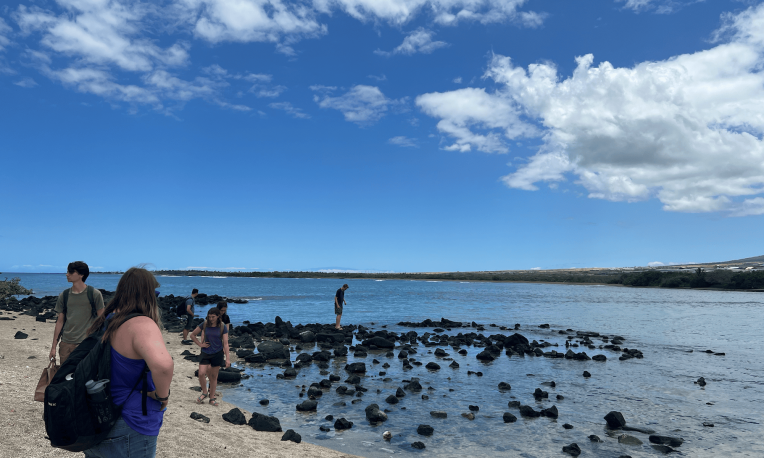
Beautiful natural classroom
Professor Karen Steensma introduces students to the “risks” of studying on a Pacific island in a pre-trip letter to the class, “Within hours—or even minutes—of arrival, the sweet, somewhat heavy fragrance in the air, warm trade winds, and sight of blue water and white beaches can intoxicate students to the point that they lose all reason and think of little other than pursuing the perfect tan…” However, as captivating as the environment may be, students on the Hawaii travel study are not there only to enjoy the scenery but also to learn about botanical habitats, the relationships between reef and forest ecosystems, and the role and impact of human activity.
All learning is active, hands-on, and immersive. During the botany course, for example, students go hiking at various locales all throughout the island, and during the coral reef course, students go snorkeling and tide pooling to observe fish and other natural shoreline inhabitants. On the shores of Kealakekua Bay and the slopes of Mauna Loa, students seek to understand the components of tropical forests, coral reefs, and their interactions. Grouped into teams, students conduct taxonomy, water quality, and environmental tests, and then organize the data they gathered.
“These outings really benefited my learning by allowing me to see what I was learning about firsthand.”
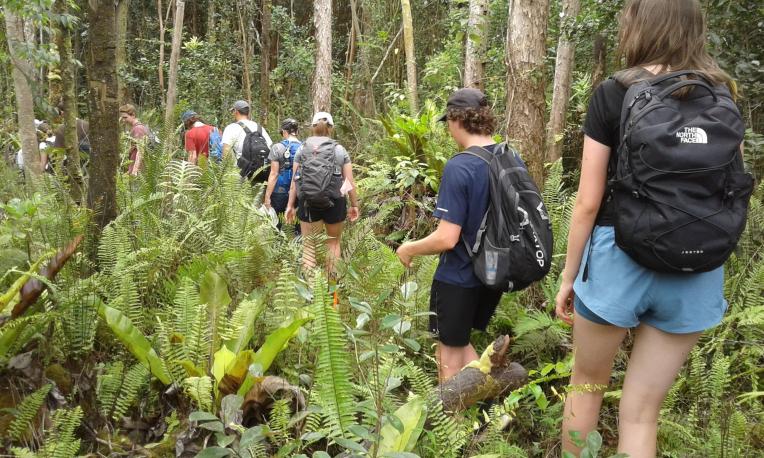
'Amazing excursions'
This year’s Hawaii travel study welcomed students from a range of majors, including psychology, education, environmental studies, biology, and biotechnology.
Lauren Mckenna, a member of this year’s Hawaii travel study, said that some of her most memorable experiences were “the amazing excursions” during the trip.
“I would have never had the opportunity to see such amazing things if I had gone just for personal travel,” she said. “The travel study forced me to either be in the water snorkeling for hours of the day, and pay such close attention to what I was seeing, or to continue hiking throughout the day and pay close attention to the plants around me.”
“These outings really benefited my learning by allowing me to see what I was learning about firsthand,” said Lauren, who is starting her second year in pre-dentistry and biochemistry programs this fall and has future aspirations for pediatric dentistry, as well as for environmental science and biology.
“I loved the hikes we did going through forests and over lava rock; it was very helpful to learn what kinds of plants you find in which kinds of locations.”
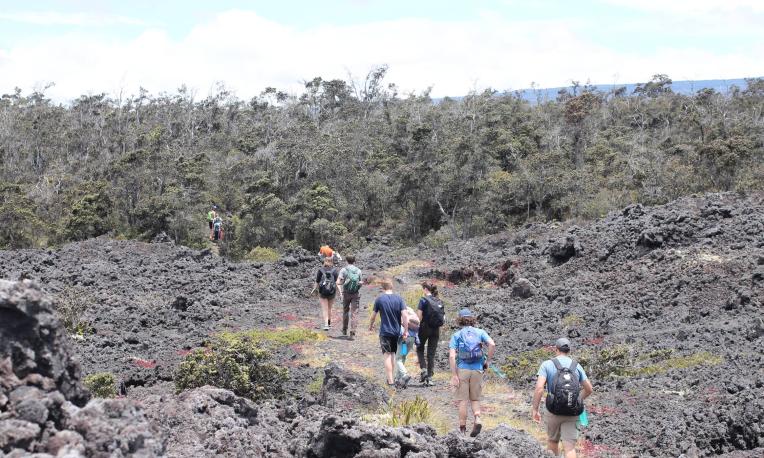
Unforgettable moments and new friendships
Jaylene Braithwaite, a third-year biology major with an ecology emphasis, commented on her experience, “Although it is hectic and information-dense, you still make time to enjoy the beauty of Hawaii and invest in new friendships.”
In fact, one of the most memorable parts of the trip for Jaylene was when all the students were studying late together for the course exam. “It was a great learning experience because we were always together, so not only did we get to know one another well, but we could also study in fun ways,” she said.
“The staff and professors on this trip were so amazing. They made it so enjoyable and exciting, and they were so intentional in getting to know the students. This was the trip of a lifetime...”
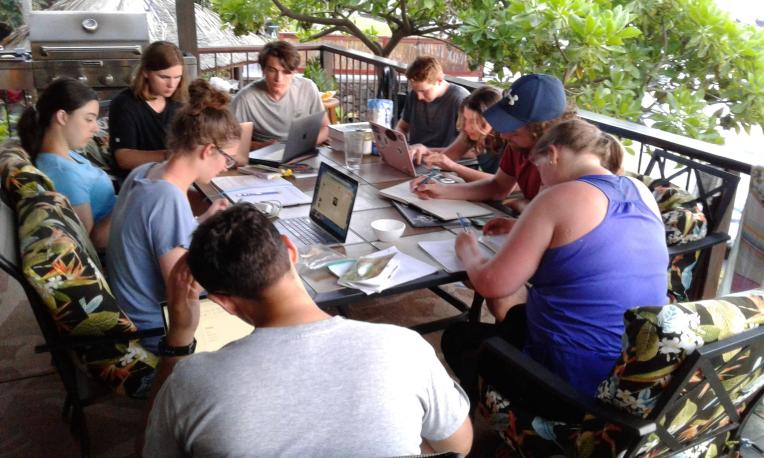
Jadiel Louw is a third-year student studying psychology and biology. Jadiel’s most memorable parts of the Hawaii travel study included “anytime spent snorkelling,” which, as she recalls, “was very helpful in learning to identify different species of fish, coral, and invertebrates during the Coral Reef Ecology portion of the trip.” As for the Tropical Botany portion of the trip, she commented, “I loved the hikes we did going through forests and over lava rock; it was very helpful to learn what kinds of plants you find in which kinds of locations.”
Jadiel adds, “The staff and professors on this trip were so amazing. They made it so enjoyable and exciting, and they were so intentional in getting to know the students. This was the trip of a lifetime and I would recommend it to anyone in biology.”
On the shores of Kealakekua Bay and the slopes of Mauna Loa, students seek to understand the components of tropical forests, coral reefs, and their interactions.
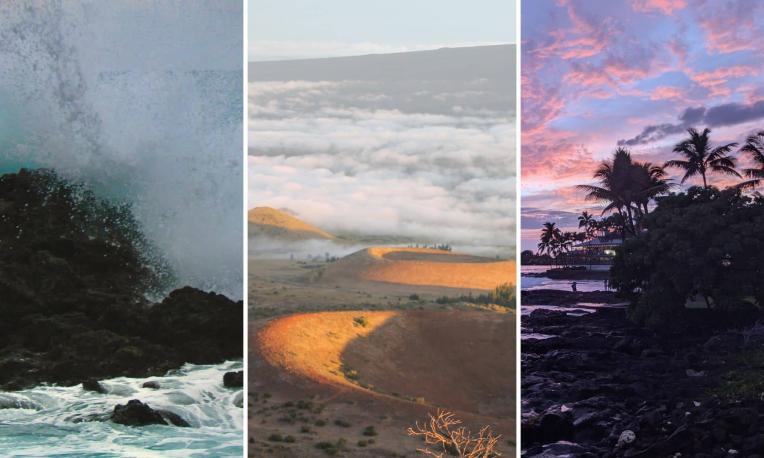
From climbing high mountains to viewing a steaming lava lake
Dr. Clements sketches out a few of the group’s adventures. On the longest hiking trail of the trip, the Pu’u Oo trail, the class journeyed through 12 kilometers of rough lava habitats intersected by forest growth, before venturing to the shoulder of the highest mountain in Hawaii, to an elevation of nearly 10,000 feet, where they saw rare alpine plants called silverswords, and witnessed the sunset after climbing a small volcanic cone.
On another day, the class went to Volcanoes National Park, where there is an active eruption of the Kilauea, forming an ever deepening lava lake. The students learned about rare plants that park botanist Sierra McDaniel was raising to try to restore populations of endangered species, and ate lunch overlooking a steaming lava lake.
Another adventure took the class to one of the largest algae factories in the world, Cyanotech, where senior company officials led a tour of their facilities that grow algae like spirulina for health food uses. Following this, the class toured Greenwell Coffee farms and learned the secrets of growing one of the world’s most famous coffees—Kona coffee.
The longest day of the trip involved travelling to one of the last remaining tracts of lowland rainforest in Hawaii, the Keau’ohana restoration area. Here students met with Jaya Dupuis who leads restoration efforts. Jaya first explained why the rainforest is so important to try to save, and then taught the class how to remove invasive plants that were jeopardizing the health of the forest.
The students learned about rare plants that park botanist Sierra McDaniel was raising to try to restore populations of endangered species, and ate lunch overlooking a steaming lava lake.
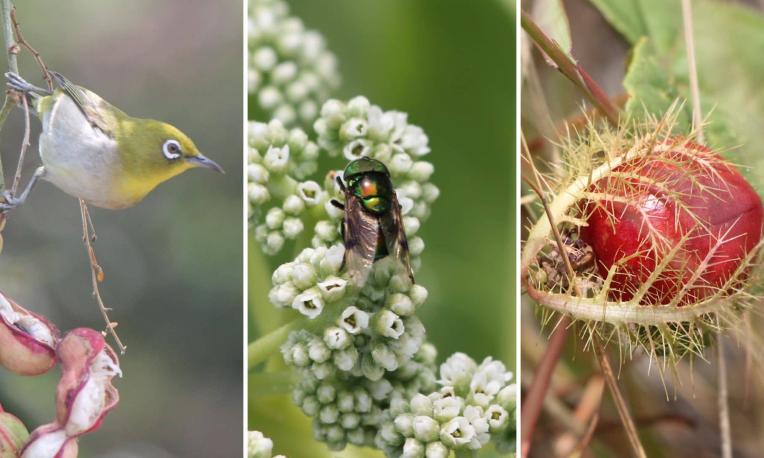
Thank you to Hawaii travel study field staff
Many wonderful staff helped to make this year’s Hawaii travel study possible, including field support staff Darcy Kehler, Barb Wernick, Cory Pittman, and Sarah Fandrich; safety/logistics coordinator, Anna Ogden; and field course assistants Janelle and Tyler Bode. We also acknowledge Dr. Charles J. Flora, who taught marine science at Western Washington University, and who started the first Coral Reef Biology trip to Maui more than 40 years ago. It is now 33 years since the first Trinity Western University Coral Reef trip to the Hawaiian Islands under the direction of Prof. Karen Steensma.
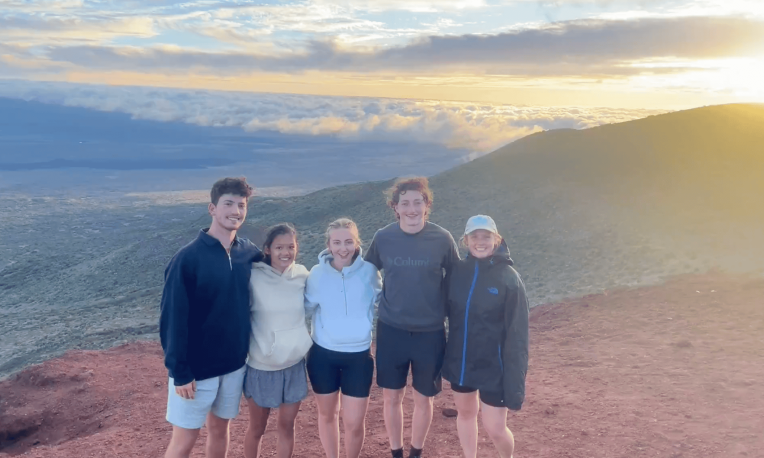
See also — TWU students learn and work within one of Africa’s busiest economic hubs, Kenya
TWU News
About Trinity Western University
Founded in 1962, Trinity Western University is Canada’s premier global Christian liberal arts university. We are dedicated to equipping students to discover meaningful connections between career, life, and the needs of the world. Drawing upon the riches of the Christian tradition, seeking to unite faith and reason through teaching and scholarship, Trinity Western University is a degree-granting research institution offering liberal arts and sciences as well as professional schools in business, nursing, education, human kinetics, graduate studies, and arts, media, and culture. It has four locations in Canada: Langley, Richmond-Lansdowne, Richmond-Minoru, and Ottawa. Learn more at www.twu.ca or follow us on Twitter @TrinityWestern, on Facebook and LinkedIn.
For media inquiries, please contact: media@twu.ca.
The views expressed by students and alumni are their own. They do not necessarily represent the views of Trinity Western University or of any other companies, groups or organizations named.

